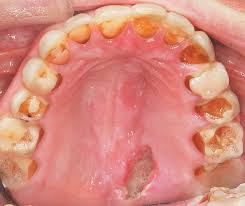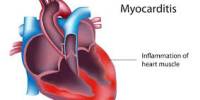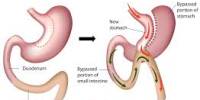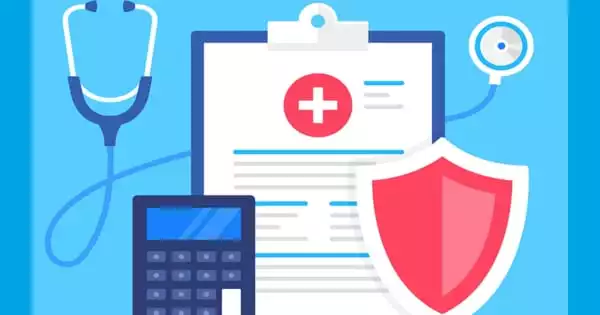What is Bulimia?
Bulimia, also called bulimia nervosa, is a psychological eating disorder. Bulimia is characterized by episodes of binge-eating followed by inappropriate methods of weight control (purging). Inappropriate methods of weight control include vomiting, fasting, enemas, excessive use of laxatives and diuretics, or compulsive exercising. Excessive shape and weight concerns are also characteristics of bulimia. A binge is an episode where an individual eats a much larger amount of food than most people would in a similar situation. Binge eating is not a response to intense hunger. It is usually a response to depression, stress, or self esteem issues. During the binge episode, the individual experiences a loss of control. However, the sense of a loss of control is also followed by a short-lived calmness. The calmness is often followed by self-loathing. The cycle of overeating and purging usually becomes an obsession and is repeated often.
Bulimia was only diagnosed as its own eating disorder in the 1980s.
People with bulimia can look perfectly normal. Most of them are of normal weight, and some may be overweight. Women with bulimia tend to be high achievers.
It is often difficult to determine whether a person is suffering from Bulimia. This occurs because bingeing and purging is often done in secret. Also, individuals suffering from Bulimia often deny their condition.
Sufferers consume huge quantities of food. Sometimes up to 20,000 calories at a time. The foods on which they binge tend to be foods labeled as “comfort foods” — sweet foods, high in calories, or smooth, soft foods like ice cream, cake, and pastry. An individual may binge anywhere from twice a day to several times daily.
A Family Member has an Eating Disorder
If you have a family member that with an Eating Disorder, your family member needs a lot of support. Suggest that your family member see an eating disorder expert. Be prepared for denial, resistance, and even anger. A doctor and/or a counselor can help them battle their eating disorder.
What Causes Bulimia?
There is currently no definite known cause of bulimia. Researchers believe it begins with dissatisfaction of the person’s body and extreme concern with body size and shape. Usually individuals suffering from bulimia have low self-esteem, feelings of helplessness and a fear of becoming fat.
Medical complications from bulimia
Some of the most common complications of bulimia are:
- Erosion of tooth enamel because of repeated exposure to acidic gastric contents.
- Dental cavities, sensitivity to hot or cold food.
- Swelling and soreness in the salivary glands (from repeated vomiting).
- Stomach Ulcers.
- Ruptures of the stomach and esophagus.
- Abnormal buildup of fluid in the intestines.
- Disruption in the normal bowel release function.
- Electrolyte imbalance.
- Dehydration
- Irregular heartbeat and in severe cases heart attack
- A greater risk for suicidal behavior
- Decrease in libido
Symptoms of Bulimia
Some of the most common symptoms of bulimia are:
- Eating uncontrollably
- Purging
- Strict dieting
- Fasting
- Vigorous exercise
- Vomiting or abusing laxatives or diuretics in an attempt to lose weight.
- Vomiting blood
- Using the bathroom frequently after meals.
- Preoccupation with body weight
- Depression or mood swings. Feeling out of control.
- Swollen glands in neck and face
- Heartburn,
- Bloating,
- Indigestion,
- Constipation
- Irregular periods
- Dental problems
- sore throat
- Weakness
- Exhaustion
- Bloodshot eyes
Risk Factors of Bulimia
There are certain professions where eating orders are more prevalent. Thinness is usually emphasized in these professions. The professions are: modeling, dancing, gymnastics, wrestling, and long-distance running.
Good news about Bulimia
Bulimia can be overcome.
Bulimia Statistics
- Bulimia affects about 10% of college age women in the United States.
- About 10% of individuals diagnosed with bulimia are men.
- 10% of individuals suffering from bulimia will die from either starvation, cardiac arrest, other medical complications, or suicide
Treatment of bulimia
Treatment for bulimia involves psychological counseling and sometimes medicines such as antidepressants. Treatment does not usually require staying in the hospital, although this is sometimes needed. Both professional counseling and antidepressant medicine can help reduce episodes of binging and purging and help you recover from bulimia. Both are long-term treatments that may require weeks or months before you notice significant results. You may need treatment with counseling and possibly medicines for more than a year.
Bulimia that occurs with another condition may take longer to treat. And you may need more than one type of treatment. If you have another condition that commonly occurs with bulimia, such as depression or substance abuse, your doctor may want to treat that condition first.
People who seek treatment for bulimia or another eating disorder may have other health problems caused by the disorder. If you have had bulimia for a long time without treatment, or if you have used substances such as laxatives, diuretics, or ipecac syrup to purge, then you may have a health problem such as dehydration that needs treatment first. In serious cases, these conditions related to bulimia may require you to spend time in the hospital.
Initial treatment
Initial treatment depends how severe the bulimia is and how long you have had it.
If you have no other conditions that need treatment first, then treatment for bulimia usually consists of:
- Psychological counseling, such as cognitive-behavioral therapy (CBT). This often includes nutritional counseling to change certain behavior and thinking patterns. The goals of CBT are to teach you to:
- Eat three meals and two snacks a day and avoid unhealthy diets.
- Reduce concern about your body weight and shape.
- Understand and reduce triggers of binge eating by examining your relationships and emotions.
- Develop a plan to learn proper coping skills to prevent future relapses.
- Medicines. Antidepressants, such as fluoxetine (Prozac, for example), are sometimes used to reduce binge-purge cycles and relieve symptoms of depression that often occur along with eating disorders.
Ongoing treatment
Continuing treatment will depend on the how long you have had bulimia and how severe it is. Continuing treatment usually consists of:
- Psychological counseling, such as interpersonal therapy (IT) or cognitive-behavioral therapy (CBT). The goals of CBT are to teach you to:
- Eat three meals and two snacks a day and avoid unhealthy diets.
- Reduce concern about your body weight and shape.
- Understand and reduce triggers of binge eating by examining your personal relationships and emotions.
- Develop a plan to learn proper coping skills to prevent future relapses.
- Antidepressant medicines. Antidepressants can help lower the number of binge-purge cycles you have and may also be used to treat another related condition, such as depression or anxiety.
















